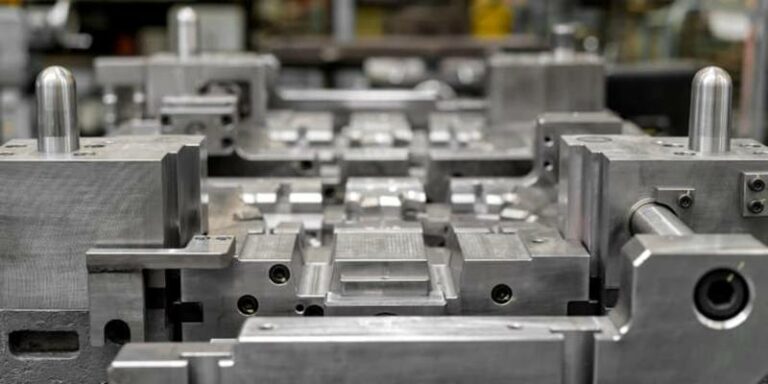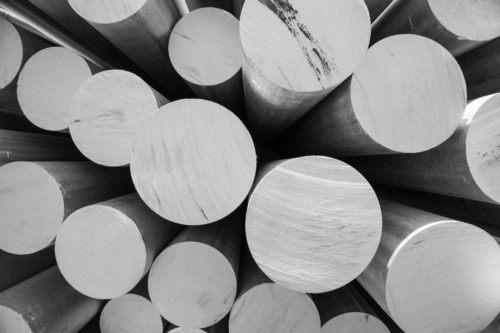The 8-Second Trick For Stahl Specialty Company
The 8-Second Trick For Stahl Specialty Company
Blog Article
The Of Stahl Specialty Company
Table of ContentsNot known Factual Statements About Stahl Specialty Company 9 Easy Facts About Stahl Specialty Company DescribedThe 9-Minute Rule for Stahl Specialty CompanyGetting My Stahl Specialty Company To WorkGetting My Stahl Specialty Company To Work10 Simple Techniques For Stahl Specialty Company

If you're developing a steel item, you've likely taken into consideration making use of light weight aluminum as the base material. Pure light weight aluminum has limited applications, so it is frequently combined with other components, such as silicon, magnesium, and manganese to develop alloys.
Various elements and quantities generate a variety of preferable physical and chemical properties. And the Aluminum Association (AA), based in The United States and copyright, has created specs that regulate aluminum alloys' composition, residential or commercial properties, and nomenclature. There are 2 types of light weight aluminum alloys wrought and cast. Foundry workers create these alloy types in various ways, which substantially affects their features.
8 Simple Techniques For Stahl Specialty Company
Cast light weight aluminum alloys are made by melting pure aluminum and combining it with various other metals while in liquid kind. The mix is put into a sand, die, or financial investment mold.

160.0 represents a cast with a minimum of 99.60% aluminum. The 4th number, which comes after the decimal factor, specifies if the alloy is a casting (xxx. 0) or an ingot (xxx. 1). Wrought light weight aluminum alloys also start by integrating molten aluminum with various other steels. Unlike cast alloys, however, they are developed right into their last shape through procedures such as extrusion, rolling, and flexing after the metal has solidified into billets or ingots.
There are many small distinctions in between wrought and cast light weight aluminum alloys, such as that actors alloys can include more substantial amounts of various other steels than wrought alloys. The most remarkable distinction between these alloys is the construction process through which they will certainly go to provide the last item. Other than some surface therapies, cast alloys will leave their mold in practically the precise solid kind wanted, whereas wrought alloys will undertake a number of adjustments while in their solid state.
If you assume that a wrought alloy might be the best for your project, take a look at some of our articles that clarify more regarding particular functioned alloys, such as Alloy 6061 and Alloy 6063. On the other hand, if you think a cast alloy would be better for you, you can discover more concerning some actors alloys in our Alloy 380 and Alloy 383 short articles (coming soon).
Stahl Specialty Company Things To Know Before You Buy
When picking an aluminum shop for your manufacturing requirements, it's important to study a number of factors. One of the most crucial aspects to think about is the experience and proficiency of the shop. Foundry. Choosing a factory that has the ideal knowledge of the light weight aluminum spreading procedure, and the profile to show for it, aids to have a successful result for your task
Having the experience and sector knowledge to craft your spreadings for ideal production and top quality results will simplify the project. Producing light weight aluminum castings needs a complicated set of procedures to attain the right outcomes. When determining on a brand-new aluminum foundry to partner with, guarantee they have considerable sector experience and are educated regarding all facets of the light weight aluminum spreading process: design, manufacturing, product evaluation, and product screening.
The foundry needs to additionally have a tried and tested record of providing exceptional items that fulfill or go beyond customer assumptions. Quality control should likewise be at the top of your listing when choosing a light weight aluminum shop. By collaborating with a certified foundry who follows the standards for quality assurance, you can safeguard the honesty of your product and guarantee it fulfills your specs.
By selecting a firm who offers services that meet or surpass your product requirements, you can be sure that your task will certainly be completed with the utmost precision and performance. Specific aluminum shops concentrate on certain kinds of manufacturing processes or casting methods. Different parts require different manufacturing techniques to cast light weight aluminum, such as sand spreading or die casting.
The Best Guide To Stahl Specialty Company
Die spreading is the name given to the process of producing intricate steel parts via use mold and mildews of the part, additionally called passes away. The procedure makes use of non-ferrous steels which do not consist of iron, such as light weight aluminum, zinc and magnesium, as a result of the preferable residential or commercial properties of the metals such as reduced weight, greater conductivity, non-magnetic conductivity and resistance to deterioration.
Pass away spreading production is fast, making high manufacturing degrees of elements easy. It produces even more components than any type of other procedure, with a high level of accuracy and repeatability. To get more information concerning die spreading and die spreading materials utilized in the process, continued reading. There are 3 sub-processes that drop under the classification of die casting: gravity pass away spreading (or long-term mold spreading), low-pressure die spreading and high-pressure die spreading.
No matter the sub-process, the die casting procedure can be helpful site broken down right into six actions. After the purity of the alloy is tested, dies are created. To prepare the needs spreading, it is essential that the passes away are clean, so that no residue from previous manufacturings stay. After cleansing, the ejection lubrication is put on the die to make certain a smooth release.
Our Stahl Specialty Company Ideas
The pure metal, likewise recognized as ingot, is included in the heating system and maintained the molten temperature level of the steel, which is after that moved to the injection chamber and injected into the die. The pressure is then preserved as the steel solidifies. Once the metal solidifies, the cooling process begins.
(https://yoomark.com/content/httpsstahlspecialtycom-0)
The thicker the wall surface of the component, the longer the cooling time due to the quantity of indoor metal that likewise requires to cool down. After the component is fully cooled, the die cuts in half open and an ejection mechanism pushes the element out. Complying with the ejection, the die is shut for the following injection cycle.
The flash is the additional product that is cast during the procedure. Deburring eliminates the smaller sized items, called burrs, after the cutting procedure.
The Only Guide to Stahl Specialty Company

Zinc is one of the most pre-owned alloys for die casting due to its lower expense of raw products. Its rust resistance likewise allows the components to be long lasting, and it is one of the much more castable alloys due to its lower melting point.
As mentioned, this alloy is just one of the most typically made use of, yet manufactures will, at times, select aluminum over zinc because of aluminum's manufacturing advantages. Aluminum is highly economical and one of the more functional alloys. Light weight aluminum is made use of for a variety of various products and industries anything from window structures to aerospace products.
Report this page